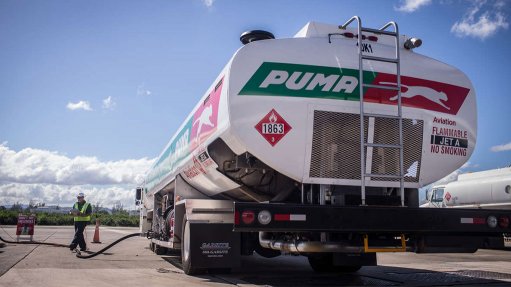As South Africa plans to get back to ‘normal’ – alcohol testing equipment needs to be dusted off
This article has been supplied as a media statement and is not written by Creamer Media. It may be available only for a limited time on this website.
By Rhys Evans, MD at ALCO-Safe
As South Africa scrambles to restore stability in the wake of the Covid-19 pandemic, industry leaders need to dust off their alcohol testing equipment to ensure worker safety. Covid-19 precautionary measures shouldn’t overshadow the need to prevent intoxicated persons from posing a risk in the workplace. Although testing should have continued throughout the pandemic, with stringent alcohol restrictions imposed by the government, there was a tendency for businesses to slack off on testing because of alcohol availability limitations. However, with the sale of alcohol now back to normal, workers must return to a safe and healthy workplace. However, with testing equipment going unused for a couple of months, recalibration will be necessary to ensure that readings are as accurate as possible.
Safety isn’t just a priority, it’s the law
In terms of the Occupational Health & Safety Act, an employer cannot allow any person who is or who appears to be intoxicated to enter or remain in the workplace. The Act does not provide a limit as to what would be considered a positive test, which makes it important for businesses to have a clear alcohol policy in place that determines the rules and provides the legal basis for drug and alcohol testing in the workplace. Generally, high-risk industries run on a zero-tolerance policy for intoxicating substances which means that any substance level above zero, is deemed to be under the influence.
Where there is no alcohol policy or testing procedures in place and an accident is caused by a worker who is under the influence, the consequences are by no means trivial, especially if management is aware that there is a problem. In most instances, companies are made aware by employees raising a concern to management that colleagues are drinking and creating a hazard or making it a higher risk for them. If management ignores the situation and someone is injured, then the directors will be held liable for that injury. Where the accident is fatal, the company can be shut down in addition to facing massive fines and criminal charges for the unlawful, negligent killing of another human being as they knowingly allowed intoxicated employees into the workplace.
Reliable results through regular recalibration
With this legal obligation to ensure that individuals who are under the influence are not permitted to enter or remain in the workplace, it becomes necessary to perform regular alcohol and substance testing in the workplace. Here, it’s important to ensure that testing equipment such as breathalysers are properly calibrated beforehand and regularly thereafter. As such, it is recommended that testing equipment be recalibrated by instrument service providers twice a year, in line with best practice drawn from the National Road Traffic Act which requires that breathalysers used for evidentiary purposes be recalibrated every six months.
Safety through accuracy
Along with establishing reliability, part of the process involves a pre-calibration check, which reports on the condition of the instrument when it arrived at the service provider. This is a good indication of the accuracy and reliability of that instrument, identifying whether faults have developed in the period between calibrations. Calibration is critical for accurate readings, and if a breathalyser has not been properly calibrated, it could give a false positive or a reading that’s so far off the mark that it’s misleading. When livelihoods are on the line - someone could face immediate dismissal for a false positive. Management must be sure that the machines they rely on for evidentiary purposes to enforce safety laws are correct.
Comments
Press Office
Announcements
What's On
Subscribe to improve your user experience...
Option 1 (equivalent of R125 a month):
Receive a weekly copy of Creamer Media's Engineering News & Mining Weekly magazine
(print copy for those in South Africa and e-magazine for those outside of South Africa)
Receive daily email newsletters
Access to full search results
Access archive of magazine back copies
Access to Projects in Progress
Access to ONE Research Report of your choice in PDF format
Option 2 (equivalent of R375 a month):
All benefits from Option 1
PLUS
Access to Creamer Media's Research Channel Africa for ALL Research Reports, in PDF format, on various industrial and mining sectors
including Electricity; Water; Energy Transition; Hydrogen; Roads, Rail and Ports; Coal; Gold; Platinum; Battery Metals; etc.
Already a subscriber?
Forgotten your password?
Receive weekly copy of Creamer Media's Engineering News & Mining Weekly magazine (print copy for those in South Africa and e-magazine for those outside of South Africa)
➕
Recieve daily email newsletters
➕
Access to full search results
➕
Access archive of magazine back copies
➕
Access to Projects in Progress
➕
Access to ONE Research Report of your choice in PDF format
RESEARCH CHANNEL AFRICA
R4500 (equivalent of R375 a month)
SUBSCRIBEAll benefits from Option 1
➕
Access to Creamer Media's Research Channel Africa for ALL Research Reports on various industrial and mining sectors, in PDF format, including on:
Electricity
➕
Water
➕
Energy Transition
➕
Hydrogen
➕
Roads, Rail and Ports
➕
Coal
➕
Gold
➕
Platinum
➕
Battery Metals
➕
etc.
Receive all benefits from Option 1 or Option 2 delivered to numerous people at your company
➕
Multiple User names and Passwords for simultaneous log-ins
➕
Intranet integration access to all in your organisation


















